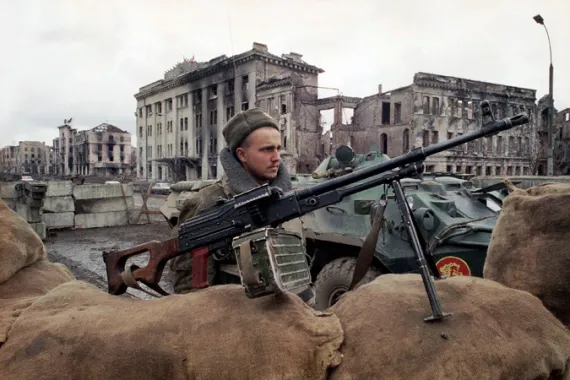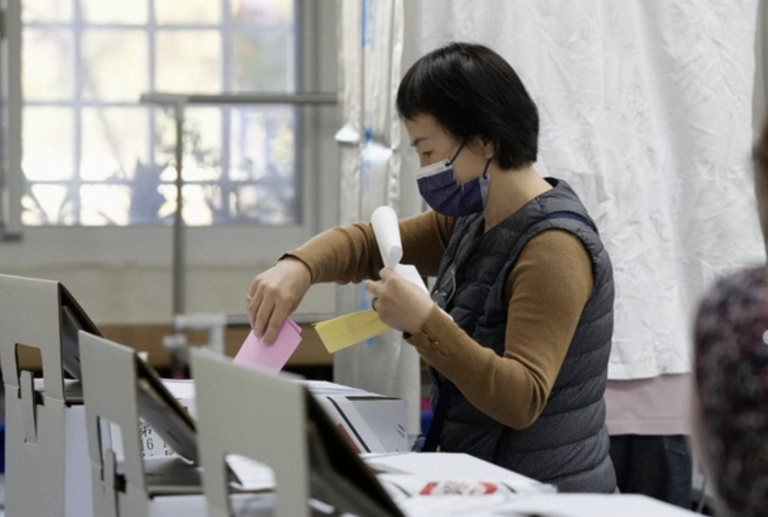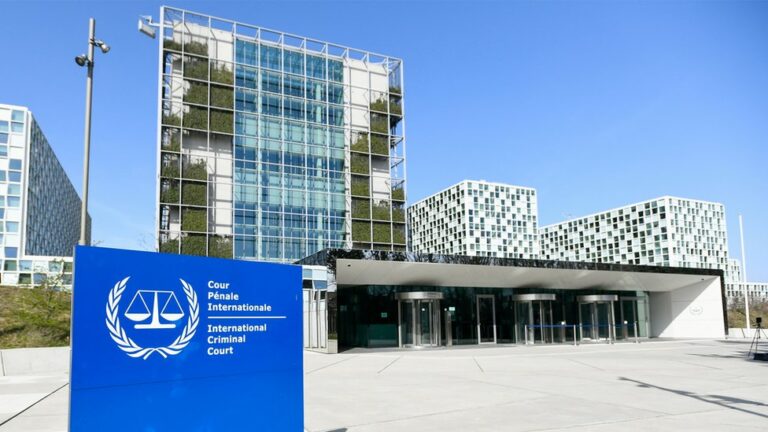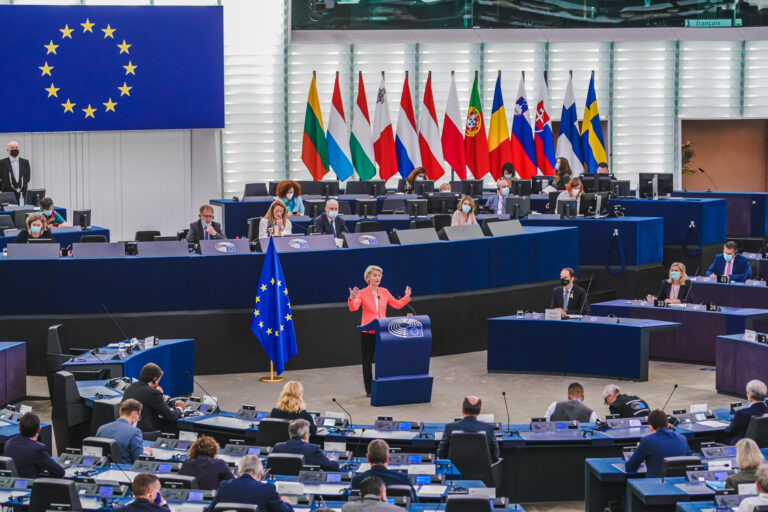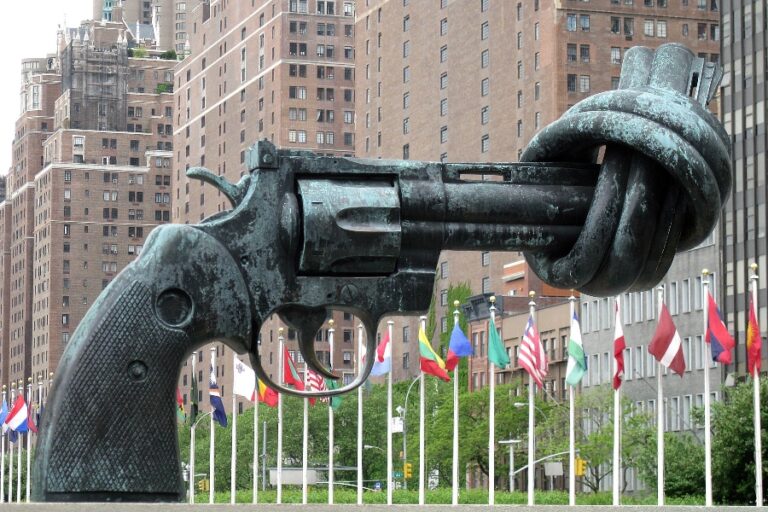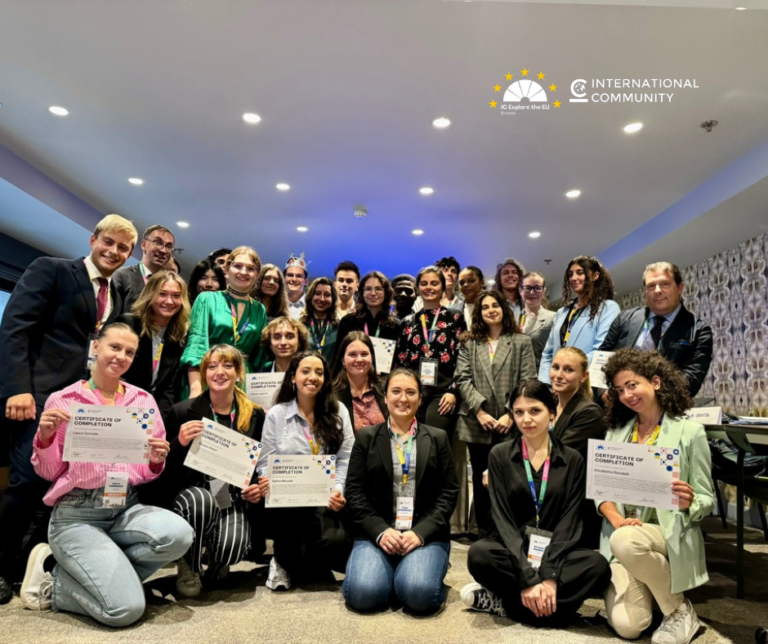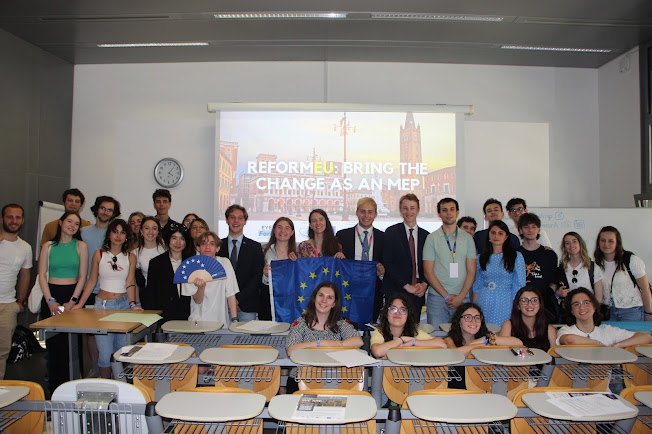Chechnya: between freedom and repression
“I’d been to some war zones before in my life, but I had never been in one as terrifying as Chechnya” – Scott Anderson, American author and war correspondent
“How we react to the tragedy of one small person accurately reflects our attitude towards a whole nationality, and increasing the numbers doesn’t change much” – Anna Politkovskaya, a Russian journalist, against the Russian war in Chechnya
Introduction
Chechnya is a region located in southwestern Russia, in the northern part of the Greater Caucasus mountain range, close to the Caspian Sea. This territory represents one of the Republics of the Russian Federation, bordering the other Russian Republics of Dagestan, Ingushetia, and North Ossetia-Alania in the north and west, with Stavropol Krai in the northwest and with the country of Georgia in the south.
Although Chechnya today represents just one of the 21 republics and one of the 81 subjects that compose the Russian Federation, it has not always been part of this State but has been an independent territory too. Chechnya’s land has witnessed centuries of periods of domination and small breaths of freedom, creating a never-ending battle for independence against the Russian State.
Historic origins of the contrasts between Chechnya and Russia
After centuries of migration in ancient times from Northeast and Central Asia, the population later known as Chechens settled in the territories of the Caucasus region. This ethnic group was largely Muslim and had a native language belonging to the Nakh group (a group of languages spoken in the Caucasus region). Chechnyan tribes started suffering from the Russian Empire’s will to expand in the region in the 16th century, although the first real attempt at conquest was made under Catherine the Great reign in 1785. Chechen resistance against Russia continued in the XIX century, especially under the tribe Muslim leader Shāmil, who prolonged the resistance to Russian conquest from the 1830s through the ’50s. However, after the ending of the Crimean War in 1856, Russian forces could concentrate all their power in Cechnya’s region, thus provoking the collapse of Chechnya’s resistance: Shāmil was captured in 1859, and many of his followers migrated to Armenia, and in the 1860s Russia consolidated its domination on the region. It was during these years that the Russian Tsar Nicholas I commanded the first of many ethnic cleansings in the region, deporting numerous Chechens to Turkey, and provoking what would be later known as the Circassian Genocide.
Until 1917 the territory remained under the control of the Russian Empire, but, following its fall, a part of Chechen territory, between 1917 and 1921, gained independence, taking advantage of the ongoing civil war in the country, and formed the Mountainous Republic of the Northern Caucasus, which, however, in 1922 was dissolved into Soviet Russia by the Red Army of Bolshevik Russia.
In 1940 the first rebellion of the region against the Soviet Union took place, but it was impassioned by the German invasion of the Caucasus in 1942. During the Second World War, Soviet leader Joseph Stalin accused the Chechens and Ingush (with whom the Chechen were united under a joint Chechen-Ingush autonomous region) of collaboration with the Germans; consequently, both groups were subjected to mass deportations to Central Asia, and the republic of Checheno-Ingushetia was dissolved. The exiles later were allowed to return to their homeland, and the Republic was reestablished under the Soviet leader Nikita Khrushchev in 1957.
Until 1990 Chechnya remained part of the Soviet Union, even though in the 1980s, thanks to the openness of the politics pursued by the Soviet president Mikhail Gorbachev, the atrocity of Russian control and deportation of Chechen People came to light, thus creating a desire of freedom and independence.
Independence and Chechen wars
Independence of the region was declared in 1991, after the collapse of the Soviet Union. In particular, in August 1991 Dzhokhar Dudayev, a Chechen politician and former Soviet Air Force general, carried out a coup against the local communist government, which ultimately led to Chechnya’s independence and his election as President of the Republic.
Russia refused to recognise independence, and, after attempting unsuccessfully to depose Dudayev (who was pursuing anti-Russian policies), in 1994 invaded Chechnya, taking control of the capital city Grozny in 1995. Chechen guerrilla resistance resisted until 1996 when a ceasefire was signed.
In that same year, President Dudayev was killed during Russian shelling, and in the following year, former guerrilla leader Aslan Maskhadov was elected president of Chechnya, whose issue of independence, however, remained undefined after the signing of the peace treaty in 1997.
Just shortly after this first Chechen war, a new conflict blew out in 1999. To be precise, the year prior, an armed Chechen Islamist group, in an attempt to put an end to the peace process with Russia and to establish an independent emirate in the regions of Chechnya and Dagestan, invaded part of the latter, thus provoking Russian counterattack. In late 1999, not only did the Russians attack the territory of Chechnya in response to the rebel invasion of Dagestan, but Russian Prime Minister Vladimir Putin blamed with no proven evidence Chechen secessionists for bombings that killed scores of civilians in Russia.
With the outbreak of the Second Chechen War, Chechnya’s independence came to an end. Russian federal troops in 2000 captured the capital, Grozny, and Putin declared direct rule on the territory from Moscow, appointing separatist-turned-loyalist Akhmat Kadyrov as head of its administration. In 2003 a new constitution for Chechnya was approved which devolved greater powers to the Chechen government but kept the republic under the control of the Russian Federation.
Chechen terrorism and the ongoing situation
Even though politically the question of Chechnya ended in 2003, as the new Constitution confined Chechnya as a Republic part of the Russian Federation, from a social point of view, Chechnya’s question was still open after the Second Chechnya War and continues still today.
In particular, Russian persecutions, ethnic cleansing and the atrocities committed by Putin’s regime during the Second Chechnyan War (abuses, ‘disappearances’ of civilians, torture of prisoners, mass graves), produced as a response to a new wave of terrorism, which harms both Russia’s mainland and the Chechens themselves.
In 2002, when the political situation of Chechnya was still undefined, a group of Chechen militants seized Dubrovskij Theatre in Moscow and took nearly 700 spectators and performers hostage for three days. In the rescue operation led by Russians, all 50 rebels and 120 died as a result of inhaling a narcotic gas released by security forces against the rebels. During the same year, a suicide bomb attack destroyed the Grozny headquarters of Chechnya’s Moscow-backed government. Later, in 2004, the President of the Republic of Chechnya, Kadyrov, and many other collaborators were killed in a Grozny bomb blast carried out by Chechen rebels.
In that same year, however, a greater tragedy occurred: on the 1st of September, in Beslan, North Ossetia, a school was taken hostage by Chechen separatist terrorists, which resulted in the death of 330 hostages, including more than one hundred children.
Russia’s counterattack to Chechen terrorism was harsh: between 2005 and 2006 many separatist leaders were killed, and the conflict was “Chechenised”, with Russia establishing a strong central power in the region to combat the terrorism. In 2009 Russia declared the ending of the counterterrorist operations in Chechnya, enhancing the power of the President of this federative republic, Ramzan Kadyrov.
Ramzan Kadyrov, son of the former Chechen leader Akhmad Kadyrov, became Chechen Prime Minister in 2007. He has maintained power ever since, creating a de facto dictatorship in the region. Moscow fears him, but at the same time, the central government relies on him to maintain order in Chechnya. He is largely accused by human rights groups of kidnaps, torture and murders towards opposition and guerrillas, but he defends himself declaring that iron rule is required to bring stability. Since the end of the Russian counteroffensive in 2009, Chechen terrorism and guerrilla operations have decreased, even though sporadic outbreaks of violence continued to occur. Regarding the information on the conflicts in Chechnya and on the Russian operations in the territory, a great tribute has to be given to Anna Politkovskaya, a Russian journalist, who documented and reported fiercely about the harsh situation in the region.
Anna Politkovskaya and her works on Chechnya
Anna Politkovskaya was a Russian journalist who became known for her reports on Chechnya and the violence perpetuated by the Russian government in the region. After graduating from Moscow State University, she started working in the 1990s for the Russian newspaper “Novaya Gazeta”, where she published her reports on the situation in Chechnya. She travelled to Chechnya widely during the Second Chechen War and afterwards, to report on the violence of Russian soldiers on the Chechen population, but also Islamic extremists living in Chechnya.
In Chechnya, she visited hospitals, and refugee camps, got in touch with victims’ families, interviewed people involved in the conflict, extremist fighters and Russian troops, and she reported all the atrocities witnessed: kidnappings, torture, rapes, attacks, mass poisoning, mass killings, extrajudicial execution and other awful abuses.
She was one of the first journalists to openly declare her aversion to Putin and to his regime and in her articles she never spared accusations against the system. She was aware of the dangers of her position, as she had a lot of enemies, but she knew that the work of a journalist was writing what was witnessed and therefore her duty was to let the whole world know the hidden truth of the war and the government policy.
Anna Politkovskaya was often seen as an intermediary between Russia and Chechnya peace negotiations. She was called to negotiate the release of hostages in the Moscow theatre hostage crisis of 2002, even though her efforts vanished by Russian gases. In 2004 she attempted to fly to Beslan, to mediate with the hostage-takers of the school. However, on the flight, after drinking tea, she lost consciousness, waking up in a hospital to find out that she had been poisoned.
Many of her articles were collected and published in books that gained international prestige as well as her books covering Russian politics and his secrets. Anna Politkovskaya always wanted to tell the truth and to give voice to people in need, and victims of abuse, and ultimately, she sacrificed her life for her duty: in 2006 she was murdered outside her home in Moscow by an unknown attempted.
The situation in Chechnya today and the involvement in the conflict in Ukraine
Since 2007, Chechnya’s control has been detained fiercely by Ramzan Kadyrov, who has established a de facto dictatorship in the region. As he was appointed President of the Republic in 2007, he abolished the Prime Minister position, centralizing all power in his hands. Tightly connected with Putin, the President has always declared himself “Putin’s foot soldier” and has transformed the Republic of Chechnya into a private federate Republic, whose survival depends on a loyalty pact between himself and Putin, with the Russian President that highly relies on Kadyrov to maintain Russian control in the region.
Chechnya’s ruling under Kadyrov’s regime is composed of a restricted war elite, made of war veterans who switched sides to join Moscow during the conflict, and technocrats skilled at budgetary issues, among other things. Kadyrov has established moralising legislation prohibiting the consumption of alcohol and gambling, making hijab compulsory for women employed in the public sector, and encouraging the worship of saints and ancestors. However, his religious moralism hides an illiberal and brutal regime that violates basic human and political rights, as torture, kidnappings and executions of opponents and ‘deviants’ happen regularly.
As 2022, the conflict in Ukraine has blown out, Kadyrov has participated actively in Russian operations in Ukraine, sending Chechen troops to the occupied region of Donbas. Chechen militia has participated also in the Mariupol siege and has conducted urban guerrilla in the city against the Ukrainian soldiers, copying a scheme that has been used by Russian troops years before right in the Chechen region.
However, there are also three Chechen battalions on the Ukrainian side, fighting on the bloody frontlines. Among these three, the most operative is the unity constituted by Dzhokhar Dudayev, son of the former Chechen president Dudayev (killed by Russians during the Second Chechen war), which is fighting for Ukraine as it represents “the best chance to free those nations under the Russian yoke”, thus giving echo also to the dissenter Chechen voices that want the freedom of their territory from Russian control.
Bibliography
Editors of Encyclopedia Britannica, 17th May 2023, Encyclopedia Britannica, Chechnya
BBC news, 11/01/2023, Chechnya profile
Staff and agencies of The Guardian, 16/03/2009, The Guardian, Chechnya and Russia: timeline
Octavio Vega, 8/05/2020, Harvard international review, The Bleeding Puzzle of Chechnya and Dagestan
Nationalia, March 2022, Chechnya
Chiara Paganelli, 20/12/2018, Wave, Inspiring Thursday: Anna Politkovskaya
Daniel Boffey, 30/01/2023, The Guardian, We’re fighting for a free future’: the Chechen battalions siding with Kyiv
Vadim Dubnov, 4/04/2023, Carnegie endowment for international peace, Is a Power Transition in the Cards in Chechnya?
Mauro Primavera, 25/10/2022, Fondazione Oasis, Chi è Kadyrov, il fedelissimo di Putin
Auhtor: Elisa Modonutti

